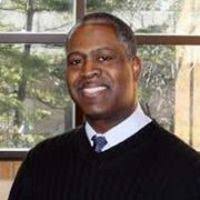
“One day, when we had a smooth sea, and moderate wind, two of my wearied countrymen, who were chained together (I was near them at the time), preferring death to such a life of misery, somehow made through the nettings, and jumped into the sea: immediately another quite dejected fellow, who on account of his illness, who was suffered to be out of irons, also followed their example,” wrote Olaudah Equiano in his classic slave narrative, The Interesting Narrative of Olaudah Equiano, published in 1789.
This description of captive Africans choosing a watery grave over a floating misery on a rancid slave ship is but a portion of the most extensive first-hand account of what the 18th century English abolitionist James Ramsay termed “The Middle Passage.” The Middle Passage once referred to the treacherous and deadly voyage from the coast of Africa to the Caribbean.
 More recently, scholars have used the phrase to refer to the time of capture in the African hinterland to the landing in the Caribbean. To paraphrase the late sociologist Ruth Simms Hamilton, the Trans-Atlantic slave trade was the maafa, the African Holocaust. It was and is the pivotal moment in the entire history of African-descended people living for generations in the Americas.
More recently, scholars have used the phrase to refer to the time of capture in the African hinterland to the landing in the Caribbean. To paraphrase the late sociologist Ruth Simms Hamilton, the Trans-Atlantic slave trade was the maafa, the African Holocaust. It was and is the pivotal moment in the entire history of African-descended people living for generations in the Americas.
After writing a summary of the Middle Passage in his history of the Haitian Revolution, The Black Jacobins, the Trinidadian writer and historian, C. L. R. James wrote:
 All America and the West Indies took slaves. When the ship reached the harbour, the cargo came up on deck to be bought. The purchasers examined them for defects, looked at the teeth, pinched his skin, sometimes tasted the perspiration to see if the slave’s blood was pure and his health as good as his appearance…Having become the property of his owner, he was branded on both sides of the breast with a hot iron. His duties were explained to him by an interpreter, and a priest instructed him in the first principles of Christianity.
All America and the West Indies took slaves. When the ship reached the harbour, the cargo came up on deck to be bought. The purchasers examined them for defects, looked at the teeth, pinched his skin, sometimes tasted the perspiration to see if the slave’s blood was pure and his health as good as his appearance…Having become the property of his owner, he was branded on both sides of the breast with a hot iron. His duties were explained to him by an interpreter, and a priest instructed him in the first principles of Christianity.
A Middle Passage worldview is one of survival and liberation. When enslaved Africans embraced Christianity, they never failed to view their new faith as one to help them survive the slave experience and liberate their souls and bodies.
Frederick Douglass and Harriet Jacobs possessed a Middle Passage worldview of survival and liberation. In the appendix of his narrative, Douglass wrote, “I love the pure, peaceable, and impartial Christianity of Christ; I therefore hate corrupt, slaveholding, women-whipping, cradle-plundering, partial and hypocritical Christianity of this land.”
 In Incidents of the Life of a Slave Girl, Jacobs articulated something similar in the context of her own Christian conversion. She stated: “the buying and selling of slaves, by professed ministers of the gospel, had given me a prejudice against the Episcopal church. The whole service seemed to me a mockery and a sham.”
In Incidents of the Life of a Slave Girl, Jacobs articulated something similar in the context of her own Christian conversion. She stated: “the buying and selling of slaves, by professed ministers of the gospel, had given me a prejudice against the Episcopal church. The whole service seemed to me a mockery and a sham.”
It was their Middle Passage worldview that allowed them to see the glaring differences between the teachings of Christ and the teaching of slaveholders. It empowered them to flee the shackles of slavery and cry out for the liberation of all enslaved persons.
James Baldwin wrote, “History is not the past. It is the present. We carry our history with us. We are our history. If we pretend otherwise, we literally are criminals.”
Throughout American history, African American Christians have had to struggle to carve out space to express their faith in accordance with African cultural practices that survived the Middle Passage. In experiencing the dehumanization of enslavement and then Jim Crow, African American Christians have articulated a faith that seeks their holistic liberation.
A Middle Passage worldview concerns itself with survival and flourishing.
In yet another challenging era for African Americans, this Middle Passage worldview persists. African American theologian Drew G. I. Hart writes in his book Trouble I’ve Seen, published in 2016,
Being Black is draining. Blackness continues to be described pejoratively in America. Black skin in our world has been designated as a marker for all things bad. To be a black American is to have to constantly tell yourself that you are somebody, that you are made in the image of God, that you are creative and intelligent.
Though we are off of the slave ship, the waves of racism and degradation constantly threaten to wash us away. Our Middle Passage experiences call for a continued attack by the Gospel of grace, mercy, and justice.

